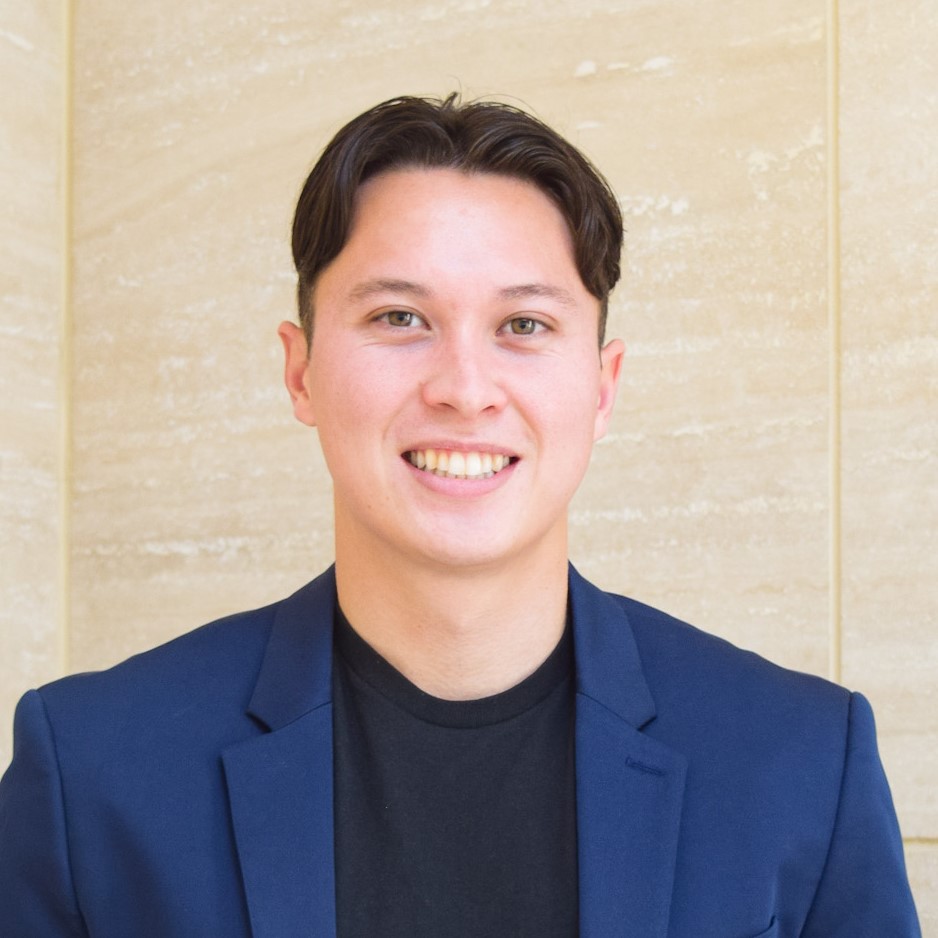by Buck Institute
December 13, 2022 . BLOG
Blog from the Bench: Brendan Hughes
 Brendan Hughes is a first year PhD student in the USC-Buck Biology of Aging Program studying neurodegenerative disease in the Campisi lab. Prior to pursuing a PhD, Brendan received a bachelor of science in biological sciences from Cal Poly, San Luis Obispo. However, he says his experience working at Rubedo Life Sciences in between his sophomore and junior year of college is where his passion for the biology of aging emerged.
Brendan Hughes is a first year PhD student in the USC-Buck Biology of Aging Program studying neurodegenerative disease in the Campisi lab. Prior to pursuing a PhD, Brendan received a bachelor of science in biological sciences from Cal Poly, San Luis Obispo. However, he says his experience working at Rubedo Life Sciences in between his sophomore and junior year of college is where his passion for the biology of aging emerged.
Here’s what Brendan has to say about his work at the Buck:
Because of the aging field’s unique potential to positively impact so many people in the world, I could not see myself working in any other field of science after college. After graduating from Cal Poly, I set my sights on further study in the biology of aging, and while applying to PhD programs focused in this field, I found the opportunity to work in the Campisi lab as a Research Associate and lab manager. Taking that job enabled me to grow my skill set in the aging field and I was accepted into the USC-Buck Biology of Aging PhD Program.
I am currently pursuing research focused on neurodegenerative disease, specifically dementia. As our older adult population grows, and because dementia disproportionately affects individuals and our healthcare system, I think there is no better time to study it. In addition, public support for research on dementia seems to be dwindling, as clinical trials continue to fail to produce positive results. Many of these clinical trials have focused on targeting amyloid beta plaques in cognitively impaired individuals, but many cognitively normal older individuals also have amyloid plaques in the brain, suggesting that amyloid beta plaques are not the root cause of dementia. We desperately need to pursue other avenues of inquiry. In the Campisi lab, we study how neuronal senescence contributes to brain dysfunction as we age, irrespective of amyloid beta plaques.
To study the brain in the lab, I am establishing a workflow for a new model at the Buck called direct differentiation. Because neurons are not readily harvested from the brain, scientists have developed models to turn one cell type into a different cell type. Every cell in the body contains the same DNA; however, cells express different parts of the DNA which leads to a cell’s identity and function. With this information, for example, we can reprogram a skin cell into a neuron by turning off the skin cell genes and turning on the neuron genes. I hope to blend this technique of direct differentiation with Dr. Judy Campisi’s expertise in cellular senescence for my PhD thesis.
Judy is an internationally renowned scientist in the field of cellular senescence. I am excited to have her as my mentor. Senescence normally helps the body heal wounds as well as protects the body from potentially cancerous cells. These cells are then cleared by our immune system once their function is performed. As we age though, senescent cells can accumulate in the body and lead to chronic inflammation, which has a myriad of negative consequences. We hope to identify novel mechanisms by which senescent neurons contribute to cognitive decline as we age, as well to understand how the senescent neurons manage to stay alive as we age. This knowledge is essential in order to develop targeted therapies for the possible maladies caused by these senescent neurons.
This project could not have developed without support from Judy, the Campisi lab scientists, and many other scientists outside and at the Buck. The work is also part of a five-year program project grant at the Buck headed by Judy Campisi, Lisa Ellerby, and Eric Verdin, which allows me to collaborate and learn from the Ellerby lab’s expertise in neuroscience and the Verdin lab’s expertise in metabolism and immunology. With the support of Judy and the collaborations ingrained into this project at its culmination, I am confident major breakthroughs are coming to the field of dementia research, which is in dire need of a success story for all the current and future individuals affected by dementia.

SHARE